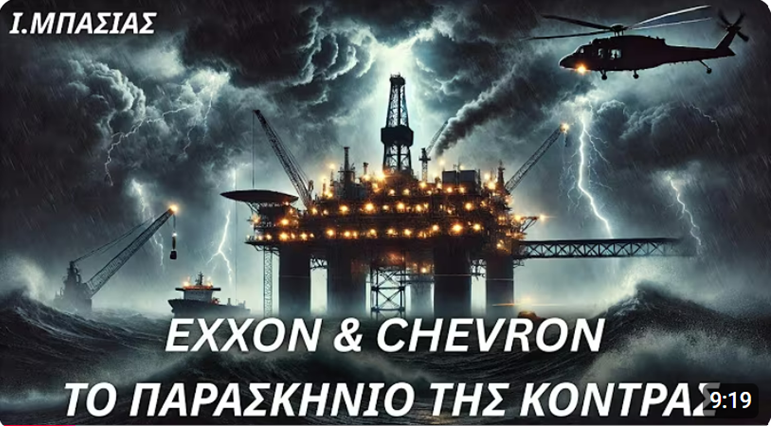Exxon & Chevron – Their Presence in Greece and the Background of Their Rivalry

The presence of the two major American companies, Exxon Mobil and Chevron, aside from its clear geopolitical implications, also showcases signs of commercial competition. This is significant for Greece, which is positioned on the opposite side of the median line with Libya. The Eastern Mediterranean is slowly becoming a center of collaborations but also rivalries, focusing on presence, portfolios of future projects that factor into balance sheets, and the swift exploitation of hydrocarbons.
However, interest is gradually shifting westward in the Mediterranean towards Libya and Algeria for all companies, including ExxonMobil and Chevron, since the Southeastern Mediterranean has limited potential for large oil and gas fields. It is no coincidence that recent disputes occurred between Israel and Chevron over the management of a significant portion of Israel's natural gas reserves by Chevron. The Israeli government wishes to increase competition in the domestic hydrocarbon sector. Also indicative is the delay in developing the Aphrodite field (10% within Israeli waters) as well as Chevron's initial terms for rapid development, which were reevaluated—rightly so—by Cyprus.
On an international level, ExxonMobil and Chevron are engaged in a major legal dispute concerning the oil assets of Hess Corporation in Guyana, which were sold to Chevron. The dispute continues in 2025 and concerns 30% of the 11 billion barrels of oil in a major field. In other words, this translates to 30% of $6.33 billion in annual revenues. Chevron's activity in Greece today stems from its decision rather than any European or Greek initiative. Currently, the presence of these two major American companies in Greece presents a unique opportunity for international tendering without delays, broadening the panel of interested companies, and relaunching tenders for the remaining onshore and offshore areas of Greece, extending even further east and into the Ionian Sea, as proposed by the Hellenic Hydrocarbon Resources Management (HHRM) in 2018 and 2019.
https://www.youtube.com/watch?v=9yfoizKpbd4&t=7s